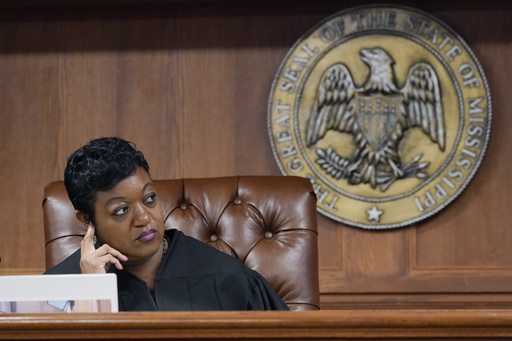
A judge in Mississippi has dismissed a lawsuit that questioned the compatibility of a 2022 state law— which limits abortion rights— with a prior 1998 ruling by the state Supreme Court that asserted a constitutional right to abortion through the right to privacy.
Hinds County Chancery Judge Crystal Wise Martin stated that the American Association of Pro-Life Obstetricians and Gynecologists did not have the legal basis to pursue the lawsuit against the Mississippi State Board of Medical Licensure, which was submitted in November 2022.
Judge Martin noted that the association failed to demonstrate that the licensing board had taken any disciplinary actions against its approximately 35 members for not directing patients to alternative abortion services. She described the association’s claims of potential harm as speculative and not suitable for judicial consideration.
According to Martin, while Mississippi law does allow the Board to revoke or suspend a physician’s license for performing certain abortions, it does not grant the Board the power to take action against physicians who choose not to provide abortion services based on their moral convictions.
Attorney Aaron Rice, representing the plaintiffs, indicated plans to appeal the decision. “We will appeal the ruling and look forward to presenting this important constitutional question to the Mississippi Supreme Court,” he stated on Wednesday.
In June 2022, the U.S. Supreme Court’s decision in a Mississippi case led to the nationwide overturning of abortion rights. Shortly after this ruling, Mississippi’s sole abortion clinic closed in response to the enforcement of a new state law that permits abortions only in life-threatening situations for the mother or in reported cases of rape.
Months later, members of the American Association of Pro-Life Obstetricians and Gynecologists initiated a legal challenge aimed at overturning the 1998 ruling from the Mississippi Supreme Court.
Prior statements from the American Board of Obstetrics and Gynecology, which certifies medical professionals in the field, indicated that doctors would not be required to act against their conscience. However, members of the anti-abortion physician group claimed that these assurances lacked sufficient firmness.
Mississippi Attorney General Lynn Fitch represented the state in the case that eventually led to the reversal of the landmark Roe v. Wade decision. Following the Supreme Court’s ruling, Fitch, a Republican, asserted that the earlier 1998 Mississippi Supreme Court decision was no longer applicable as it was based on the now-overturned Roe precedent.
